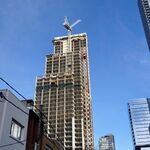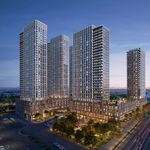A
AlvinofDiaspar
Guest
From the Globe:
Chinatown blues
Business is down and For Sale signs are popping up on a once-vibrant strip
SARAH ELTON
Special to The Globe and Mail
The front window of the former Chinese bakery is thick with dust. The cardboard of a For Sale sign droops in the same spot where, not long ago, fresh egg tarts were sold. The bakery is one of more than two dozen buildings that are either for sale, for lease or simply lying vacant in Chinatown East, the strip of Asian grocers, bakeries and restaurants around Broadview and Gerrard.
The area's long-time residents, a mix of Chinese and Vietnamese-Chinese Canadians who started to buy aging Victorians on the nearby side streets in the 1980s, are leaving for the suburbs. The generation who grew up here is coming of age and, instead of buying close to home, settling in places like Scarborough and Mississauga. Those who did own houses are selling their downtown properties to trade up for newer homes in the 'burbs with backyards and even parking. The few who remain are largely the elderly, and so the area is hollowing out as landlords try to cash out and shopkeepers take their businesses elsewhere.
"The neighbourhood is dying," says Alex Lien, whose family owns the Tung Hing Bakery chain. Mr. Lien opened the Broadview location 15 years ago, and in the past five years has watched business drop dramatically. In the past year alone, he has personally seen a 30-per-cent drop in profits. In a few months, Mr. Lien plans to assess whether his profits in Chinatown East are high enough to warrant staying put for another season. Across the street at the Rose Café, a take-away joint selling spring rolls and Vietnamese subs, it's the same story. The owner, Rose Thi Hoa Pham, has also noticed a 30-per-cent slump.
Judging by the crowds that flock to buy the low-priced fruit and vegetables displayed in crates along the sidewalks, you'd never guess that business is down. But Mr. Lien says the new people who are moving in are predominantly recent immigrants from mainland China who don't have a lot of money.
"People aren't willing to spend. You have to sell everything cheap," he says. "And yet the cost of living has gone up. It squeezes your profits." His baked goods sell on Broadview for a third less than they do in the company's other locations in Mississauga, North York and at Dundas and Spadina.
The newcomers from mainland China who are drawn to Broadview and Gerrard tend to be refugee claimants or people sponsored by family members and have come with very little, says Lillian Li, a settlement counsellor at the Riverdale Immigrant Women's Centre, who is from mainland China herself. She says that in China, these people tended to be peasants or labourers, largely uneducated, who toiled for meagre earnings. For them, Toronto is Golden Mountain, an opportunity to break free from poverty by saving their money to buy a house.
And so the prices are cheap anywhere you go in Chinatown East. A haircut is $6, a sandwich at the Rose Café is $1.50 and bubble tea will set you back a mere $2, as compared with more than $4 downtown.
Some of the local real estate is also a bargain. In the so-called Riverdale Village, a brown brick complex just north of Dundas where tiny townhouses were built cheek by jowl in the 1980s, you can pay as little as $190,000 a unit -- as opposed to upward of $400,000 for a renovated semi on nearby side streets.
But if one group is moving out, that doesn't mean Chinatown East is on the road to extinction, says James So, a real-estate broker who has run an office on Broadview since 1976. Rather than a decaying neighbourhood and suburban flight, he sees a neighbourhood in transition as the old crowd moves out.
While the newcomers arrive with little money, Mr. So says, they are extremely hard-working. He has found that, in very little time, they are able to save up enough money to buy a home in the area.
And anyone who has lived in Toronto for a while has seen how the waves of history shape the city and its Chinese areas. The city's first Chinatown near Bay and Dundas has all but disappeared, buried under City Hall (residents and shop owners were relocated in the early 1960s). What is now Chinatown downtown used to be a Jewish district; its vestiges remained on Spadina until the late 1980s in places like Switzer's Deli. And Markham's Pacific Mall, one of the largest Chinese malls in North America, was a farmer's field not that long ago.
As for the future of Chinatown East, Mr. So believes it is on the cusp of major change. The Toronto (Don) Jail that looms on the corner is scheduled to close and Bridgepoint Health, the rehab and long-term care facility, is expanding. Condominiums are planned, and the restaurant chain Spring Rolls is about to open up on Broadview.
"This area, in no time, will come up again," he says.
AoD
Chinatown blues
Business is down and For Sale signs are popping up on a once-vibrant strip
SARAH ELTON
Special to The Globe and Mail
The front window of the former Chinese bakery is thick with dust. The cardboard of a For Sale sign droops in the same spot where, not long ago, fresh egg tarts were sold. The bakery is one of more than two dozen buildings that are either for sale, for lease or simply lying vacant in Chinatown East, the strip of Asian grocers, bakeries and restaurants around Broadview and Gerrard.
The area's long-time residents, a mix of Chinese and Vietnamese-Chinese Canadians who started to buy aging Victorians on the nearby side streets in the 1980s, are leaving for the suburbs. The generation who grew up here is coming of age and, instead of buying close to home, settling in places like Scarborough and Mississauga. Those who did own houses are selling their downtown properties to trade up for newer homes in the 'burbs with backyards and even parking. The few who remain are largely the elderly, and so the area is hollowing out as landlords try to cash out and shopkeepers take their businesses elsewhere.
"The neighbourhood is dying," says Alex Lien, whose family owns the Tung Hing Bakery chain. Mr. Lien opened the Broadview location 15 years ago, and in the past five years has watched business drop dramatically. In the past year alone, he has personally seen a 30-per-cent drop in profits. In a few months, Mr. Lien plans to assess whether his profits in Chinatown East are high enough to warrant staying put for another season. Across the street at the Rose Café, a take-away joint selling spring rolls and Vietnamese subs, it's the same story. The owner, Rose Thi Hoa Pham, has also noticed a 30-per-cent slump.
Judging by the crowds that flock to buy the low-priced fruit and vegetables displayed in crates along the sidewalks, you'd never guess that business is down. But Mr. Lien says the new people who are moving in are predominantly recent immigrants from mainland China who don't have a lot of money.
"People aren't willing to spend. You have to sell everything cheap," he says. "And yet the cost of living has gone up. It squeezes your profits." His baked goods sell on Broadview for a third less than they do in the company's other locations in Mississauga, North York and at Dundas and Spadina.
The newcomers from mainland China who are drawn to Broadview and Gerrard tend to be refugee claimants or people sponsored by family members and have come with very little, says Lillian Li, a settlement counsellor at the Riverdale Immigrant Women's Centre, who is from mainland China herself. She says that in China, these people tended to be peasants or labourers, largely uneducated, who toiled for meagre earnings. For them, Toronto is Golden Mountain, an opportunity to break free from poverty by saving their money to buy a house.
And so the prices are cheap anywhere you go in Chinatown East. A haircut is $6, a sandwich at the Rose Café is $1.50 and bubble tea will set you back a mere $2, as compared with more than $4 downtown.
Some of the local real estate is also a bargain. In the so-called Riverdale Village, a brown brick complex just north of Dundas where tiny townhouses were built cheek by jowl in the 1980s, you can pay as little as $190,000 a unit -- as opposed to upward of $400,000 for a renovated semi on nearby side streets.
But if one group is moving out, that doesn't mean Chinatown East is on the road to extinction, says James So, a real-estate broker who has run an office on Broadview since 1976. Rather than a decaying neighbourhood and suburban flight, he sees a neighbourhood in transition as the old crowd moves out.
While the newcomers arrive with little money, Mr. So says, they are extremely hard-working. He has found that, in very little time, they are able to save up enough money to buy a home in the area.
And anyone who has lived in Toronto for a while has seen how the waves of history shape the city and its Chinese areas. The city's first Chinatown near Bay and Dundas has all but disappeared, buried under City Hall (residents and shop owners were relocated in the early 1960s). What is now Chinatown downtown used to be a Jewish district; its vestiges remained on Spadina until the late 1980s in places like Switzer's Deli. And Markham's Pacific Mall, one of the largest Chinese malls in North America, was a farmer's field not that long ago.
As for the future of Chinatown East, Mr. So believes it is on the cusp of major change. The Toronto (Don) Jail that looms on the corner is scheduled to close and Bridgepoint Health, the rehab and long-term care facility, is expanding. Condominiums are planned, and the restaurant chain Spring Rolls is about to open up on Broadview.
"This area, in no time, will come up again," he says.
AoD




